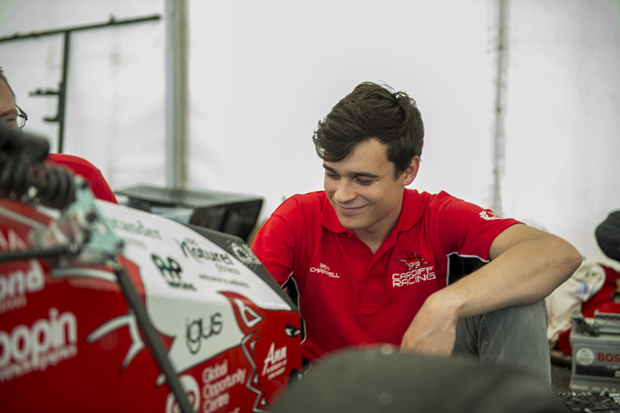Cardiff University utilises igus bearings for a smoother season
The challenge? To design, develop, build and market a single seater racing car for the IMechE’s annual Formula Student competition.
Made up of students from the School of Engineering, Cardiff Racing is currently the number one team in Wales and third in the UK. This year’s car, the CR12, is the 12th car to be entered by the University in as many years. Paying particular attention to the car’s aerodynamic performance, the undergraduates have implemented many new features.
The CR11, which was last year’s car, is being used as a test vehicle to gather data and create a superior vehicle, the CR12, for Formula Student 2016 at Silverstone: “Pedal boxes are a critical part of any race car design, needing to provide the driver not only with control and efficiency but a better feel and greater dexterity to provide quicker laps,” said Tom Scrivens, Suspension Team, Cardiff University. “The problem being that the linear guides and bearings used require regular maintenance - taking a cloth with solvent to remove any old contaminates and then lubricating. This process is very time consuming.”
Having learnt of the igus Young Engineers Support (YES) programme from the previous season and seen their bearings being used on competing cars internationally, the Cardiff team called upon their services. “igus provided slider bearings which are used to mount the adjustable pedal box, a very innovative solution compared to previous years,” said Scrivens. “This design also utilises their plain journal bearings at the pivot points.”
igus bearings are made of wear-resistant ‘iglidur J’ material, a complex technical polymer that is self-lubricating and therefore requires no maintenance. Their insensitivity to dust and dirt, and pressure resistance – make them especially suitable for the use in the chassis, engine compartment and gearbox of a car. They are also corrosion resistant and silent running, making them suitable for use in door hinges and other moving applications. When compared with their metallic counterparts, these plastic parts are lightweight, which helps contribute to cutting the vehicle’s fuel consumption.
“We always want to support dedication and enthusiasm in engineering and having helped retrofit many cars with these bearings in the past, when Cardiff University approached us we were more than happy to help,” said Robert Dumayne, director, igus.
“Weighing seven times less than metallic rolled bearings they really, speak for themselves,” added Scrivens. “They are kind on both the environment and the pocket as they reduce production costs and offer a longer service life thanks to their self-lubricating and high wear resistance properties.”






